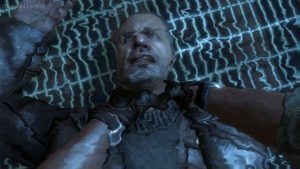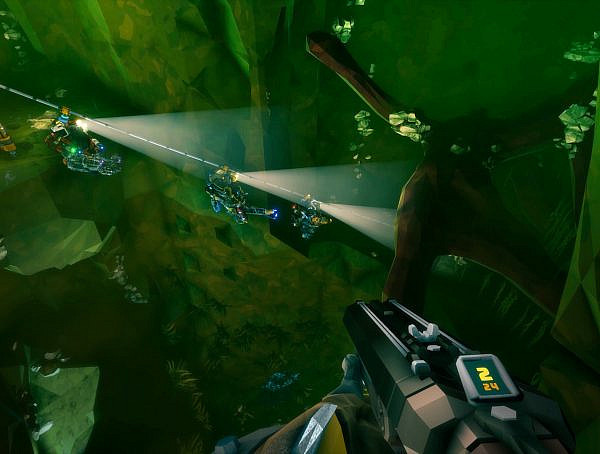JFKreloaded and Call of Duty depict one of the JFK assassination in a way that creates uncertainty
The assassination of John F. Kennedy has been depicted in multiple forms of media. Video games are no exception, and in her article” There Has To Be More To It”: Diegetic Violence and the uncertainty of President Kennedy’s Death Carrie Andersen considers the effects of two of these games: JFK: Reloaded (2004) and Call of Duty: Black Ops (2010). Andersen aims to examine what impact these depictions have had. She does this by using her own examination of the game’s narratological and ludological content and the reactions of players taken from Youtube comments and online forum posts. It should be noted that the article is only Andersen’s interpretation of the topic, and not objective facts.
Some key terms in Andersen’s article are prosthetic memory and diegetic violence. Prosthetic memories are visions of the past that have been created by repeating artificially created historical moments in the media. Prosthetic memories cause a person to to have a personal and deeply felt memory of a past event that the person did not experience. Diegetic violence means violence that moves a narrative forward. Both of the games examined in the articles contain diegetic violence: the player has to inflict violence in order to complete his or her objectives. Andersen argues that the limitations to this diegetic violence are the main cause of uncertainty in the game narratives, and her aim is to focus on three of these limitations: high difficulty, a limited temporal scope and the mixture of interactive and non-interactive gameplay elements.
JFK: Reloaded was developed by Traffic Games in 2004. The game puts the players in the shoes of Lee Harvey Oswald, and the objective is to recreate the events described by the Warren Commission’s report as closely as possible. The designers of Reloaded stated that the purpose of the game was to prove that the Warren Commission was right and that Oswald worked alone.
The second game, Call of Duty: Black Ops, was developed by Treyarch and released in 2010 by Activision. The story is set during the early 1960s, and features an alternative take on the Kennedy assassination, including a brainwashed CIA-operative named Alex Mason. In the final playable mission of the game, the player confronts the man behind Mason’s brainwashing: a soviet officer called Dragovich. As Dragovich is being choked to death Mason yells “You’re trying to fuck with my mind! You tried to make me kill my own president!” Dragovich grins, and replies “Tried?”
 Dragovich meeting his end.
Dragovich meeting his end.
Picture taken from http://callofduty.wikia.com/wiki/File:Dragovich_death.jpg
After the mission, the player is shown a cut scene containing real archive footage of Kennedy as he descends from his plane and gets on the car in Dallas. The film stops to reveal Alex Mason standing in the crowd, implying that he killed Kennedy.
Andersen states that many players saw these games as a challenge to the official narratives of the assassination. This is especially ironic with Reloaded, which was meant to confirm the one shooter theory. However, the game’s high difficulty was seen as proof that Oswald couldn’t have done it alone. As one commenter on Youtube puts it: “[The game] may be sick, but the game just shows how impossible it must have been for Oswald to do this on his own”. The high difficulty also inspires players to try different approaches, creating alternate histories of the assassination.
Anderson states that the limited time frame that the player has in Reloaded further hinders the attempts to have a single historical narrative. Since the game only lasts for a very brief moment, the player can play the narrative multiple times in a short amount of time. This means that the players will experience many alternative historical outcomes that differ from the official narrative. The short length of the game also invites players to intentionally change history. This can be seen especially well on Youtube, as many videos posted by players focus on various chaotic alternatives they created of history instead of historically accurate playthroughs.
The third aspect highlighted by Andersen is the mixture of interactive and non-interactive gameplay elements. This is especially clear in Black ops. The game contains many unplayable cut scenes, meaning that some key parts of the game’s narrative progress, like Kennedy’s death, are moments where the player cannot control the action. Andersen states that this passivity distances players from the narrative. This causes players to question the events of the assassination in both the Black Ops story and the real world. For some players, these two worlds even became entangled: “I think Alex Mason was a REAL person in REAL life… And that some of Black Ops its-self referes [sic] to his life. But I’m not sure who actually killed JFK”.
Andersen ends her article by stating that the games she examined show history as something uncertain and open for discussion. This can be seen in the numerous posts found online about what “really happened” in these games.
Key Information:
Original Article: ”There Has To Be More To It”: Diegetic Violence and the uncertainty of President Kennedy’s Death
Author: Carrie Andersen
Published: Game Studies, Volume 15, issue 2, December 2015
Original article accessible from http://gamestudies.org/1502/articles/andersen
You might also like
More from Game Research Highlights
How do you want to do this? – A look into the therapeutic uses of role-playing games
Can playing RPGs contribute positively to your wellbeing? A recent study aims to find out how RPGs are being used …
Eldritch horrors and tentacles – Defining what “Lovecraftian” is in games
H.P. Lovecrafts legacy lives today in the shared world of Cthulhu Mythos and its iconic monsters. Prema Arasu defines the …
Are Souls Games the Contemporary Myths?
Dom Ford’s Approaching FromSoftware’s Souls Games as Myth reveals the Souls series as a modern mythology where gods fall, desires …















